What's The Cost of an In-House Digital Marketing Team?

One of the biggest decisions you have to make with your marketing is how you want to get it done. Some companies prefer to keep everything in-house, while others would rather let the skills of an agency handle it for them. Neither approach is better than the other, so long as you have the right mixture of skill, experience, and talent available. That's why it so often comes down to one thing: cost.
Agency pricing is easy. Just visit the websites of any of the million different marketing agencies out there and look at their pricing pages. If they don't have pricing pages, look for agencies with comparable services, or just fill out their lead generation form and ask them. It's really not that difficult to get a quote, so long as you're willing to field or ignore the resulting sales contacts as they try to close the deal with you.
What about an in-house team, though? There are a ton of different variables at play here, so it really can be almost any level of cost. Let's dig into the topic and see what we can find!
 30 Second Summary
30 Second Summary
You need to decide between keeping your marketing in-house or using an agency. For a mid-sized business with under $5M in sales, you should spend about 7% of your revenue on marketing. If you choose in-house, you'll pay more but get better control and faster communication. Your core team should include a marketing manager, ad specialist and content creators. You can use freelancers for specialized tasks like photography. A hybrid approach lets you mix in-house staff with agency support, which can give you the best of both worlds while controlling costs.
Your Budget
The first and most constraining factor for your marketing team is your budget. How much money do you have to throw at your marketing?
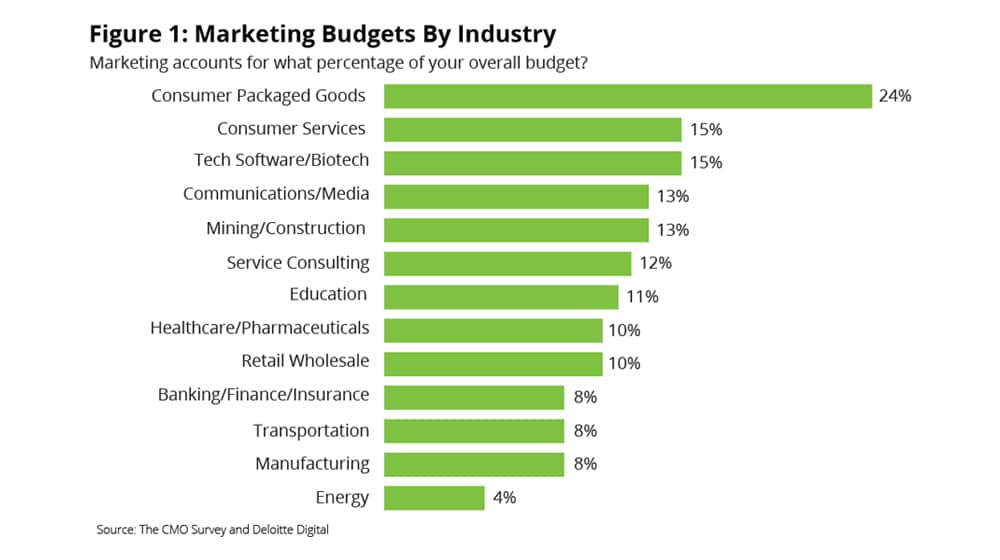
According to the US SBA, most mid-sized businesses with under five million in sales annually – with an assumed profit margin of 10 percent – should spend at least 7% of their gross revenue on marketing for best effect. Spending less is leaving sales on the table, and spending more starts to see diminishing returns.
That budget covers everything in your marketing, from paying for assets to paid advertising to contracting promoters. The only thing it doesn't necessarily cover is salary for your employees.
This is, of course, an estimate. Your numbers may be different, higher or lower depending on any number of different factors. Still, it gives you a baseline for what broad-spectrum studies have indicated is a good average to aim for.
The Size of Your Team
Some small businesses can work very well with a team made up of a single employee and a handful of freelancers supplementing their work. Other businesses might need half a dozen employees to manage every facet of their digital marketing. Larger businesses may end up with over a dozen people on their teams.

Obviously, the more people you want to have as part of your team, the more money you're going to be spending simply on salaries, benefits, and resources. On the other hand, what you lose in having multiple employees, you make up for in quality and efficiency.
If you have one person doing the job of three people, that one person becomes overworked and dissatisfied. They may take shortcuts, they might half-ass their duties, or they might just burn out. Worse, they become a single point of failure. If that person doesn't show up to work one day, you're left high and dry, and good luck finding someone else to fill the shoes of one person doing three peoples' jobs.
I often find that many businesses wait until they've reached a crisis point to hire that one extra employee that would make all the difference. I've done it myself. It's very hard to justify the expense of finding someone to hire and training them when you have so much other work to do. The trick is to initiate the process earlier, before you reach that crisis, and integrate them into your team before your house of cards gets too tall.
The Size of Your Business
The size of your business often dictates your budget, but more than that, it dictates how much you have in terms of resources and connections. Digital marketing can be expensive and difficult to run when you're operating on a small budget.

One of the most difficult hurdles you have to face as a small business is finding people with talent and experience who are willing to work for a low salary. You don't have the budget to pay a higher salary, but the low amount you offer might only attract middling at best candidates. This is often why small businesses go with agencies instead of an in-house team, and I don't blame them.
It's not uncommon for small businesses to rely on agencies for much of their early growth. Once you've reached a stable position as a "large" small business, then you can look to expanding your team to take on more management in-house. Maybe you dial back your contract with an agency and start doing some of the work yourself, or maybe you cut off an agency entirely and pick up where they left off. There are plenty of options, and a lot depends on how gracefully the agency wants to hand off service.
The Roles of Team Members
There are a wide selection of possible roles you may need for people on your in-house team. You might not need all of them, and you may be able to pick up people who can do more than one role effectively. This is especially true with smaller teams that don't need a dedicated videographer or what have you.

Here are some roles, and their average salary ranges, according to Glassdoor via Raka:
- Campaign Manager. The person who takes the role of marketing director and oversees the whole team. Salary range: 40-75k
- Project Manager. The person who organizes and schedules the team, ensures resources are available, and directs individual projects. Salary range: 50-110k.
- Marketing Strategist. The person who builds and optimizes the overall marketing strategy, working with analytics to keep campaigns on track. Salary range: 55-105k.
- Marketing Producer. The person who handles producing much of the actual content, such as video scripts, emails, blog posts, and social media content. A blog manager can often fill this role. Salary range: 45-105k.
- Marketing Analyst. The person who works with analytics and generates reports for campaign metrics. Salary range: 45-80k.
- Ad Manager. The person who handles all forms of digital advertising, from content creation to targeting to campaign optimization. Salary range: 45-65k.
- Ad Producer. The person who handles much of what the ad manager does, but at a more hands-on level. Salary range: 40-60k.
- Ad Analyst. The person who handles data reporting on various ad channels, providing reports to managers to guide further strategy. Salary range: 50-75k.
- Video Producer. The person responsible for creating all video content, including animations and video assets. Salary range: 40-90k.
- Photographer. The person who takes photographs and provides graphic design (potentially, a graphic designer can be another role as well). Salary range: 25-60k.
- Designer. The person who creates assets out of resources provided by other sources. This includes everything from email templates to website graphics to advertising images. Salary range: 40-70k.
- Developer. The person who handles keeping your site up to date, builds templates and back-end code, and creates custom modules for software you use. Salary range: 60-125k.
All of this doesn't even account for other roles which might come up. For example, maybe you want a dedicated copywriter to create blog posts and ad copy for your marketing team. Even a freelancer can be widely variable in price, depending on their pricing structure, their rates, and even where you found them.
Other roles you might consider part of your marketing team, or part of a different development team, include people like a web developer, a graphic artist, and a product specialist. A lot depends on what you want to categorize as marketing versus what is part of R&D, networking, or development.
Salary ranges are all around the same amount for different roles, but remember that everyone on your team needs to be paid a suitable wage. Low wages are one of the most important factors driving turnover rate. It pays to keep employees happy, so you don't have constant churn, turnover of institutional knowledge, and time wasted with training.
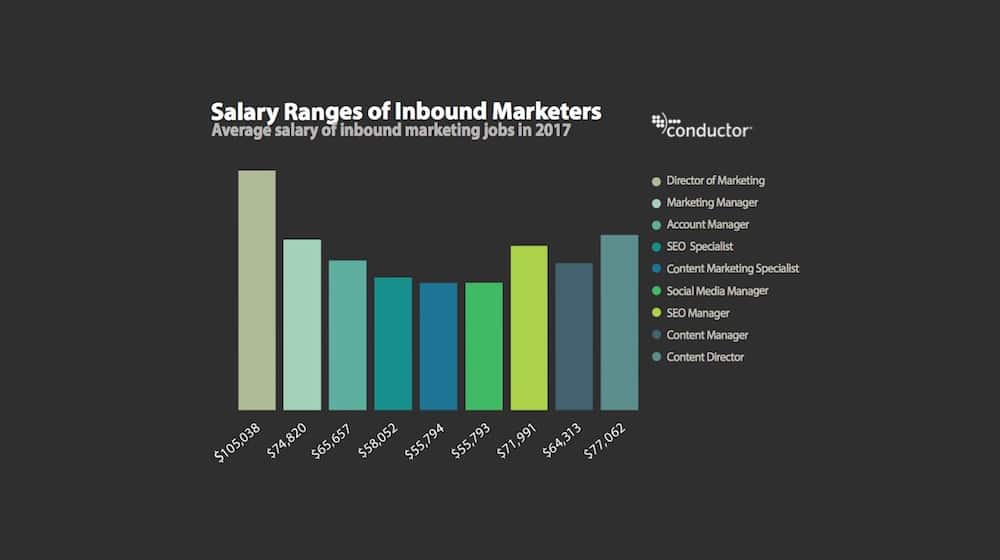
Don't forget that there are other associated costs for employees beyond salaries. You have to consider employee taxes for your state for operation, benefits for your employees, and more. By some measures, every hour an employee works costs an employer $3 in supplemental benefits.
Now, most small businesses don't need all of those roles on staff. A single manager to keep everything tight and controlled, with a bird's-eye view of the whole marketing effort, is essential. It's always a good idea to hire a specialist to handle paid advertising, because it's very complicated and can waste a lot of money if it's done incorrectly. A couple of designers to produce written and graphic copy are a good part of the team as well. Everything else can typically be hired on a per-project or freelance basis.
Your Return on Investment
Marketing is all about generating more profits. Every piece of every marketing effort is aimed at sending leads to your sales team, who can close the deal and make your business some money.
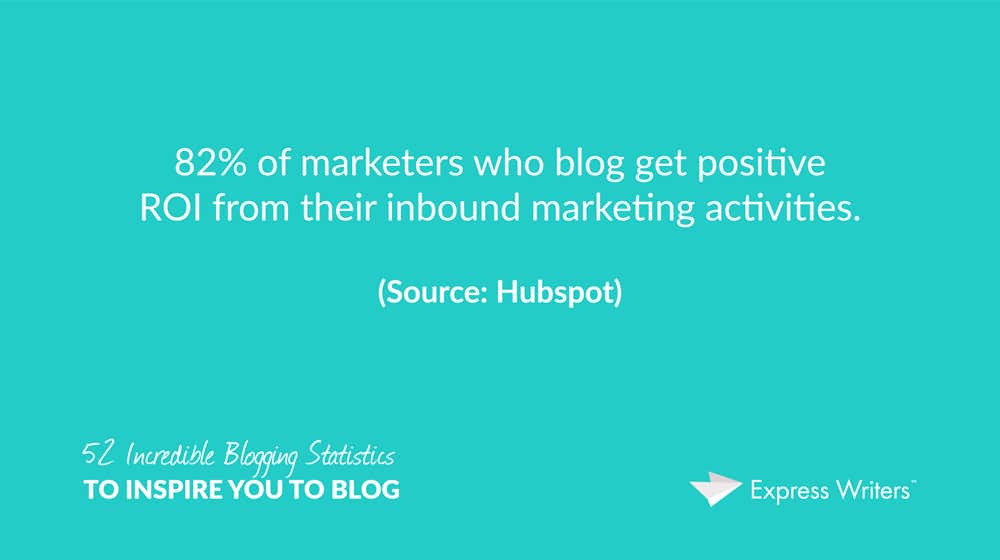
Obviously, you need to look at your team in terms of ROI. You're spending money on salaries, you're spending it on producing or paying for text and graphical content, you're spending it on paid advertising. Sooner or later, that money needs to come back to you. Tracking this and making decisions is one of the most important considerations you have to keep in mind.
Unfortunately, there's not really any good way to predict this. All you can do is keep an accounting of the costs associated with marketing, the returns you get from that marketing, and the potential for growth in the future.
At the same time, you can't let the pure numbers drive every decision. Blogging, for example, is a great way to engineer slow and steady growth for your company, but it's not going to show an actual profit for quite a while after setting it up. Yet you can't cut off the blog because it's not making money, because it's one of the core elements to a sound digital marketing strategy.
A Hybrid Approach
One option you have available to you is to make a hybrid plan with some in-house employees and some agencies or freelancers picking up more skilled positions.
This is often the best option for small businesses, especially those who want to use more robust forms of marketing without having to hire a full-time employee to handle some of it.
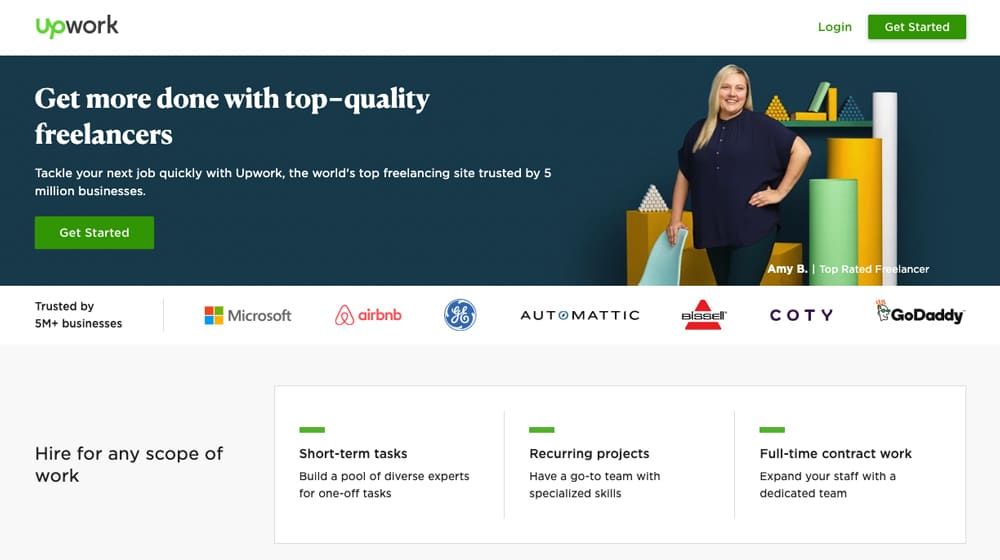
For example, you might hire a marketing director to develop and guide your overall marketing campaign. You could hire a social media strategist to handle that aspect of your marketing, or a public relations expert to keep an eye on your reputation and address external reviews and comments.
Meanwhile, you can hire an agency to do most of the legwork of managing your paid advertising. Under the guidance of your marketing manager, they can leverage their experience while your manager guides your own goals to fruition.
Depending on the level of agency you hire, you might also need to provide them with resource. You can hire freelancers to provide photography or videography without needing to pay such a person full time, particularly if you only need their skills on occasion.
This approach is likely to be a little more expensive than hiring an agency to handle absolutely everything, but it's less expensive than a team you put together yourself. It's a good middle ground, but middle grounds aren't always the best of both worlds, so it really depends on the people and agencies you hire to do the job.
Is an In-House Team Right for Your Business?
Only you can make the determination whether or not keeping an in-house staff for your marketing is the right decision. All I can do is help you weigh the scales.
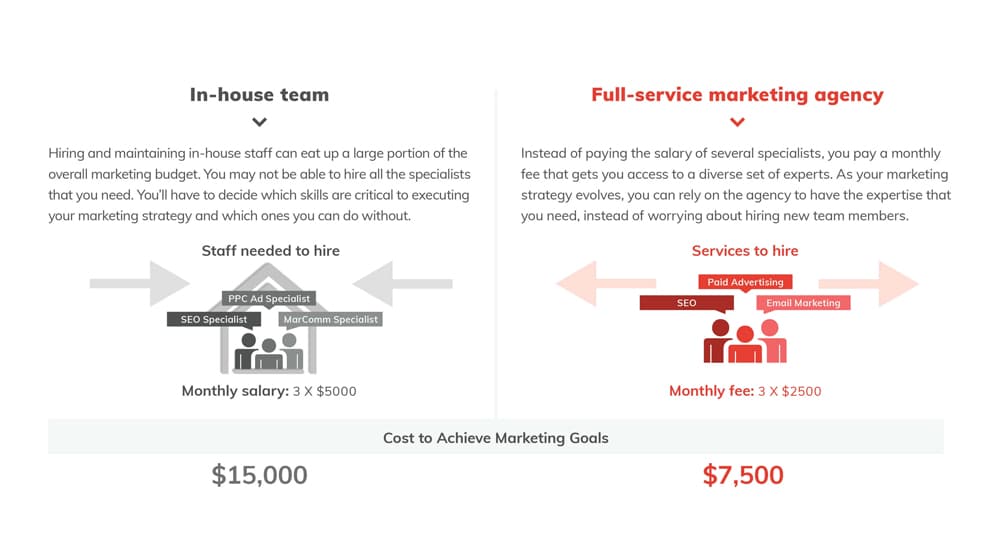
So what are the pros and cons of having an in-house team? Let's start with the benefits.
- An in-house team is generally going to be more closely knit with your overall company goals, culture, and perspective. Since you can interface with them directly, you have a lot more control.
- An in-house team doesn't necessarily need to be 100% in-house. Freelancers can supplement some of the less frequent duties, or even some common but lower skilled duties, for a lower price.
- With an in-house team, you don't have to wonder if your agency has your best interests at heart. After all, what happens if the agency you're using is also the agency your competitor is using? Which one do they put more effort into promoting?
- In-house teams don't have a communications delay, so you can take a marketing plan from idea to implementation in a very short amount of time.
- You can often find highly skilled workers for an in-house team if you provide a competitive salary and benefits, particularly people who are used to being on the bottom rung of an agency or working as a freelancer.
On the other hand, it's not all sunshine and flowers. There are some definite drawbacks to an in-house team.
- It's universally going to be more expensive. There are agencies that will handle digital marketing for a shockingly low price, and they don't have to be paid healthcare or other benefits.
- You have to handle all of the hiring, training, and turnover yourself. An agency has to handle this too, but it's not something that you need to be concerned with unless it affects their service.
- The people you hire might not be as highly skilled or as experienced as the people in an agency you contract. It can take a lot of work to put together an effective team.
- It can be harder to scale quickly. If you want to expand to take advantage of a trend in your industry, you need to go through the hiring process to find a new team member or three, whereas with an agency you can just tell them you want to ramp up for a few months.
Agencies have their place at the low end of small businesses, and at the upper end of large businesses, where a highly specialized and massive organization with millions to spend wants to get the best results. Other than that, an in-house team is often a good choice, once you get it set up.
What do you think? Have you tried out an in-house team? If so, how did it go?



 30 Second Summary
30 Second Summary



October 20, 2020
The hard part for me is just finding someone that I can trust. Agencies, freelancers, they all look great on paper until you hire them and have to work out the mess yourself afterwards. I swear if some of these people put half as much effort into their work as they do making themselves look like an expert...
October 26, 2020
Hey Ronald, I couldn't agree more. Content marketing is actually a creative industry, although it blends with technical SEO and marketing.
For that reason, like any creative industry, things like a portfolio and references are very important. Check out the work they're doing for themselves. If they aren't blogging for themselves but they're offering it to their clients, that's a warning sign. If they don't have any active clients who offered to be a reference for them, that's another warning sign.
I hope this helps you, if you ever need assistance or pointing in the right direction, feel free to drop me a line.
June 26, 2022
Hey James, what if the applicant is new to blogging and has no blogging samples but has some technical samples? Would you still consider them?
July 21, 2022
It can't hurt to give them a sample project. I wrote a guide on this here if you're interested:
https://www.contentpowered.com/blog/hiring-content-writer-blog/
April 22, 2021
The more difficult the task, it seems it's harder to find talented employees.
April 22, 2021
Hey Peter! That certainly tends to be the case, a lot of the good ones are already scooped up. They are out there though.
I recommend being picky and implementing a rigorous interview process with tests. We pretty much don't even look at resumes anymore because they are rarely representative of the talent.
Good luck with the search!
June 13, 2022
How many tests do you usually give during the hiring process? I want to include 2-3 tests but I don't want to leave a bad impression of having a needlessly long hiring process.
June 17, 2022
Hey Dale! Usually just one to get them started - depending on the candidate, we might start them part-time on a trial basis to see how they do with real-world clients and to evaluate their coachability.
September 04, 2022
Do you think we should go hybrid? We currently have a small in-house team but the workload is starting to pile and it might take too much time if we hire individually.
September 06, 2022
Hey Dennis!
We work with a ton of agencies that lean on us (and other agencies) for work. It can be very effective, especially when you're in growth mode.
Much more efficient and easier than trying to hire and train a new employee, too.